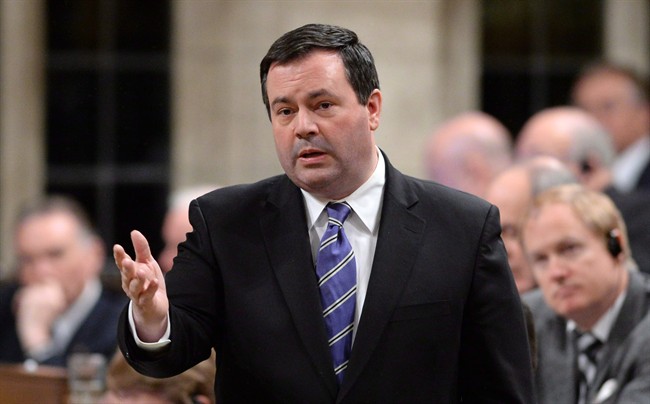OTTAWA – The provinces and territories are firmly resisting a contentious federal skills training proposal, saying they want to see more flexibility before a deal can be reached over the much-touted Canada Job Grant.

They’re presenting the federal Tories with an “alternative” proposition that would provide more flexibility to the provinces in how the proposed program would be funded, as well as how small businesses could participate, said Brad Duguid, Ontario’s minister of training, colleges and universities.
“I think it speaks volumes that every province and territory remain united on this issue,” he said Wednesday in an interview with The Canadian Press. “We have been since Day 1 and continue to be.”
The proposed grant, a centrepiece of the last Conservative budget, is supposed to provide $15,000 for each eligible worker, with the cost divided equally among Ottawa, the provinces and employers. Federal Employment Minister Jason Kenney offered in December to cover the provincial portion, but there would be no new money allocated to do it.
VIDEO: Trudeau says Canada Job Grant is a ‘failed plan’
The Tories said the provincial portion of the grant would come through the existing Labour Market Development Agreement, that gives provinces money for programs that help jobless people who qualify for employment insurance.
To cover the federal portion, the Tories want to slice $300 million from the separate Labour Market Agreement, which provides provinces with money to train unemployed workers who aren’t eligible for employment insurance and is aimed at aboriginals, immigrants, women, youth, older workers, people with disabilities and those with low literacy levels.
Duguid said Kenney’s revised plan would still divert $300 million from existing programs for those workers.
“We continue to remain united on the principle that the new program cannot be funded on the backs of our programs that serve our marginalized population,” he said.
“I am perplexed by the fixation that the federal government seems to have to want to do damage to those programs that are working,” Duguid said.
He declined to provide details on the counter-proposal, which was reached Tuesday but hasn’t yet been forwarded to Kenney.
- Alberta to overhaul municipal rules to include sweeping new powers, municipal political parties
- Norad looking to NATO to help detect threats over the Arctic, chief says
- Grocery code: How Ottawa has tried to get Loblaw, Walmart on board
- Military judges don’t have divided loyalties, Canada’s top court rules
Duguid did say it would give the provinces more flexibility to be able to take those federal dollars from other non-priority programs, allow them to find the money in other areas, or take them from the Labour Market Development Agreement or Labour Market Agreement.
It addresses weaknesses in the Tories’ original plan to provide more flexibility for small businesses, Duguid said, which may be excluded from the program because they can’t afford to participate. It also takes on another problem in Kenney’s Christmas Eve counter-proposal that if businesses don’t participate, the provinces will be on the hook to pay back to Ottawa the amount they don’t get from businesses – which is “unacceptable,” he said.
“In essence, what we’ve presented to them is a very workable, reasonable framework that will allow the Canada Job Grant to proceed in provinces that are willing to take it on and allow for a more effective program that’s going to meet the needs of out-of-work Canadians and businesses across the country,” the minister added.
If Kenney accepts their proposal, the ministers will go back to the premiers for final confirmation, Duguid said. But he wouldn’t say what will happen if Kenney rejects the proposition.
He said he believes the federal government will see it as “inherently reasonable” and move towards a deal.
Quebec has already said it won’t participate in the Canada Job Grant. Some other provinces want to be able to opt out as well, Duguid said.
The Tories touted the plan in last October’s throne speech and have spent millions of dollars advertising it, all without the agreement of the provinces and territories. Kenney’s first sit-down with his counterparts was in early November.
Kenney has said he’s cautiously optimistic an agreement can be reached before the plan is scheduled to go into effect April 1.



Comments